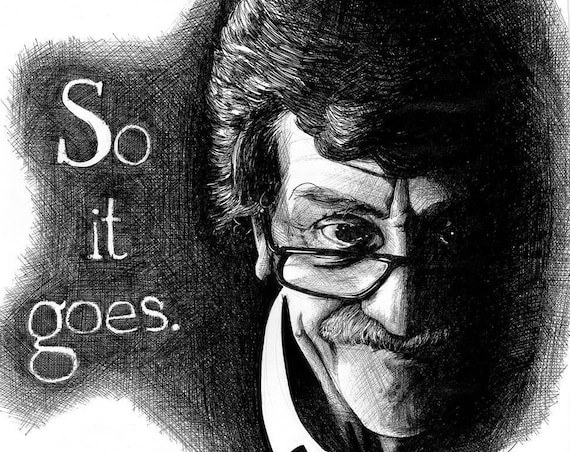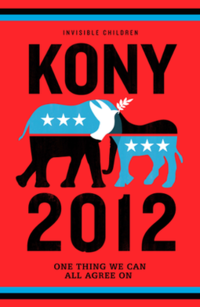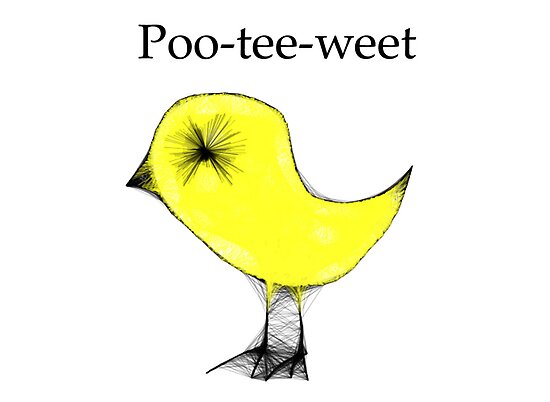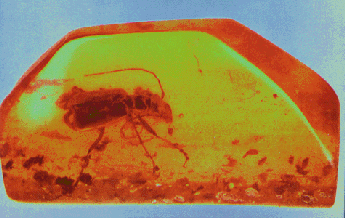Saturday, August 4, 2012
Chapter 10: Poo-tee-weet?
Chapter 10: Simile
Chapter 9: the Serenity Prayer
God, grant me the serenity to accept the things I cannot change,
Courage to change the things I can,
And wisdom to know the difference.
Courage to change the things I can,
And wisdom to know the difference.
When I first read this prayer, the thoughts or ideas in the prayer seems to almost be clustered. I had to break it down to truly understand its meaning. First, we are asking for comfort to accept things that cannot be changed, which is pretty straight forward. This is very comparable to the "bugs in amber" symbolism that we are stuck in the moment and cannot change it. The next line asks for the courage to change things that I can. People go through the problem of being scared to make changes in their life that can better them as a person. The last line is confusing in asking for the wisdom to know the difference between the two. After reading the line again, it is important to know the difference so people do not waste time on unchangeable problems, etc. It is kind evident that Kurt Vonnegut believes in the meaning of the prayer, and it is shown throughout the novel.
Friday, August 3, 2012
Chapter 9: Symbol

While reading further in the chapter, I started to think of the odd wagon and what was its purpose. Then I realized its meaning. I believe the wagon symbolizes that even though it may seem like a time of happiness, being the victor of war, the survivors of the war still suffered symbolic death. The death of their feeling of living a meaningful life. The death of the innocence of the "babies" that had fought in the war. Billy did not grasp the emptiness of victory in war until he sees the condition of the horses, which are pitiful.
In conclusion, the green coffin-shaped wagon had a deeper purpose in symbolizing death of the survivors in several ways. Vonnegut, throughout the novel, has been trying to show that war is pointless, and death will be suffered even by the winning side. This green wagon is Vonnegut's way of demonstrating this theme.
Chapter 8: Time Travel

Billy's ability to see consequences is the important part of his time travel. Humanity doesn't see the "whole picture". Humanity doesn't understand the consequences of their actions. Vonnegut's thought is that, if humans could see, or would think about the "whole picture", they wouldn't do things like bomb the city of Dresden, treat each other cruelly, etc. Vonnegut uses the Tralfamadorian view of their lives, and Billy's time travelling, to demonstrate this point. He criticizes humans with the hope that we will learn to behave better.
This was a topic that I had difficulties understanding and had to research. After reading on this topic, it actually makes a lot sense and is a great theme for the novel.
Chapter 8: Extended Metaphor
All in all, chapter eight was interesting in how Vonnegut tells the reader about the Dresden bombings.
Thursday, August 2, 2012
Chapter 7: So It Goes

I hope the quality of the post will overshadow the quantity. Anyways, on to chapter eight!
Chapter 7: Flashback
Since I was lazy the past few days, I procrastinated in finishing my posts. I am wishing the quality of the post stay the same even with the shortened time period. Anyways, I hope everyone is enjoying the last few weeks of summer!
Friday, July 27, 2012
Chapter 6: Blue and Ivory
According to SparkNotes, the phrase "blue and ivory" is used to represent the thin membrane between life and death. This is when it made sense to me. These blue and ivory feet appeared on both Billy and the corpse of the hobo, allowing the reader to make the connection: the corpse is dead and Billy is alive; yet, they share the same physical feature, making them closer in bodily state than what is thought. Vonnegut is trying to show the reader that life and death are not as separated as people may think.
I believe that this is one of the major themes of Slaughterhouse-Five, being an anti-war novel and all. This is a theme, when thought about deeply, makes sense since life is extremely precious and can be taken away at any moment. In the mindset of Vonnegut, life and death are not as far apart as it may appear.
Chapter 6: Dramatic Irony
Sorry this post is shorter then my other ones. I feel like this literary term is almost self explanatory. Anyways, I am starting to really get into Slaughterhouse-Five and some of its themes. This novel has been great so far!
Chapter 5: Hail, Hail, the Gang's All Here
According to the Wikipedia article that I read, this song was popular in the United States, being written in 1917. When I read this, I found it quite odd. Why would Englishmen be singing a song that was popular in America? Could it be because they are trying to make the American prisoners of war feel comfortable and welcomed? Honestly, I believe that is what they are doing. Anyways, I will place a link of the Wikipedia article below just in case anyone wants to read it.
http://en.wikipedia.org/wiki/Hail,_Hail,_the_Gang's_All_Here
Wednesday, July 25, 2012
Chapter 5: Internal Conflict
I, for reasonable examples, have reason to believe Billy is not completely insane. Billy graduated from Optometry school as the third best in his class of forty-seven, which shows that he is a sophisticated man. Optometry is a practice that an everyday Joe cannot be an expert in. This being the case, Billy has become wealthy by the means of his high-class Optometry office. This has to show that Billy has not completely lost his mind, yet.
Even though there are some reasons to believe Billy is not insane, there are numerous reasons to believe that he is. First of all, he is continuously time traveling through events in his life, which sounds extremely insane. Second, many soldiers came back showing signs of being insane after events they experienced in World War Two. Billy could be a prime example of this by witnessing and surviving the bombing of Dresden. Lastly, Billy does not even realize that the room is cold, even when the furnace has gone out.
So the question is, has Billy become insane? At the beginning of the novel, there was not much reason to believe that Billy is insane, but by reading further, I am starting to believe that he is. By the actions and the characteristics that he demonstrates, Billy is starting to make me a believer in him being insane. Well, I guess I will have to continue reading and find out.
Tuesday, July 24, 2012
Chapter 4: Free Will
Free will, a topic I have never put much thought into, is a controversial topic. My own personal definition of free will is the ability to make decisions by yourself and not being forced to do them. They are many different tasks, activities, and jobs that take this ability away. It may sound silly, but even little tasks like being forced to do the dishes takes away our free will.
Throughout Slaughterhouse-Five, Billy loses his ability of free will. When Billy was younger, his father threw him in a pool trying to teach Billy how to swim. To his father's dismay, Billy enjoys the bottom of the pool more, but against Billy's free will, his father takes him out of the pool. Another example of Billy losing his ability of free will is being drafted and forced to fight in World War Two.
Overall, I believe free will is something that does exist throughout life. Although it may seem nonexistence, free will is always there, but can be taken away for a given period of time.
Saturday, July 21, 2012
Chapter 4: Foreshadowing
Shortly after this, Vonnegut "randomly" describes a car thief from Cicero, Illinois, named Paul Lazzaro. The passage, "Lazzaro, too, had been on Roland Weary's boxcar, and had given his word of honor to Weary that he would find some way to make Billy Pilgrim pay for Weary's death. He was looking around now, wondering which naked human being was Billy" shows that Paul Lazzaro is truly devoted to avenging Weary.
This passage made me believe that Vonnegut was trying to foreshadow the reader something. The audience already knows that Billy lives to be a middle-aged man, which means he survived the war. But Vonnegut never describes how Billy dies... Could it be that Lazzaro sticks to his promise to Weary and attempts to avenge him by killing Billy even after all this time? I believe that this could be a possibility, but I'm not entirely sure.
All in all, when I read this passage, it made me believe that it was an example of foreshadowing. I'm honestly not sure if this is an example of foreshadowing, but I think it could possibly be one. Well, I guess I'll have to wait and find out.
Friday, July 20, 2012
Chapter 3: Croesus
While reading, I came across the quote, "He [Billy] was rich as Croesus, something he had never expected to be, not in a million years" (Vonnegut 61). Vonnegut then goes on to describe his wealth by the number of doctors that work for him, and other investments he has made. When I first read this quote, I was stuck on the question, "Who is this Croesus guy?" So in this post, I decided I would do some research and talk about him.
Croesus, the king of Lydia from 560 to 547 BC until his defeat by the Persians, is most associated with his wealth. Being the king of Lydia came with its benefits. Croesus would live a life of luxury, something that comes with being a powerful king. He is credited with being the first foreigner to come in contact with Greece, and he even formed an alliance with Sparta. One of his biggest accomplishments is issuing the first true gold coins with a set value for general circulation. Later, Croesus is also credited with issuing silver coins in general circulation. Both ideas would become revolutionary in his time.
According to Wikipedia, "...expressions such as 'rich as Croesus' or 'richer than Croesus' are used to indicate great wealth to this day." Which, yes, these expressions might be used today, but honestly this is the first time I have heard these expressions or at least recognized them. I do have to give Vonnegut credit in using a very unique expression that I had to research to fully understand. This makes me realize just how clever Kurt Vonnegut really is.
Thursday, July 19, 2012
Chapter 3: Antihero

Another quality that makes me believe that Billy is an antihero is his random outbursts of sobbing. This quality is shown in the passage, "But sleep would not come. Tears came instead. They seeped. Billy turned on the Magic Mike Fingers, and he was jiggled as he wept" (Vonnegut 62). Most heroes do not show signs of weaknesses, flaws, or even normal human qualities and emotions. This does not refer to only "superheros", but heroes in novels.
In conclusion, these two passages show that Billy lacks in the qualities of courage and grace. As of now, I characterize Billy as an antihero, but I could be proven wrong with "future" actions. It's kind of difficult to use "future" lightly in this novel. Anyways, chapter three was very enjoyable, and I look forward to reading about Billy's alien abduction.
Wednesday, July 18, 2012
Chapter 2: The Fourth Kind
Chapter Two in Slaughterhouse-Five reminds me of a movie I recently watched at my friend's birthday party. The movie, titled The Fourth Kind, is a movie about horrific types of incidents in a small town in Alaska. Dr. Abigail Tyler, a psychologist, is repeatedly seeing patients that report seeing a white owl and suddenly are filled with fear. The fear they are experiencing is the result of aliens interacting with them, which is unknown to most patients. Dr. Abigail Tyler begins to experiencing the same interactions as her patients, and her daughter is abducted by aliens shortly after. Trying to convince a police officer of this abduction, the officer believes that Dr. Abigail is insane and accuses her of her own daughter's disappearance.
The situation in The Fourth Kind is comparable to Billy's dilemma. Billy is seen as insane by his daughter, Barbara, when he reports to a radio station in New York that he had been abducted by aliens from the planet of Tralfamadore. This abduction lasted merely a few Earth seconds, but was actually a few years on Tralfamadore. Barbara cannot believe Billy, and honestly it would be hard to.
In my opinion, these two situations are very much comparable. Honestly, it would be hard to believe anyone, even our closest family members, if they reported they were abducted by aliens. I know many people would share my opinion on this topic. Even in today's society, a person saying they were abducted by aliens would seem insane.
All in all, Billy saying he was abducted by aliens seems sketchy. I guess I'll just have to wait and see if he is actually telling the truth...
Tuesday, July 17, 2012
Chapter 2: Indirect Characterization

Another prime example of Indirect Characterization in Slaughterhouse-Five is Billy's experience after his involvement in an airplane crash. Vonnegut describes Billy, after the crash, by saying, "When Billy finally got home to Illium after the airplane crash, he was quiet for a while. . . He didn't resume practice" (Vonnegut 25). This description of Billy's situation shows the crash deeply effected his mind and even scared him. Because of this crash, Billy will not be the same mentally or emotionally.
Chapter Two was confusing, but by the end of the chapter, it made sense. It was very interesting in its structure, and the events that took place throughout the chapter.
Monday, July 16, 2012
Chapter 1: Baby Soldiers

Mary O'Hare's opinion reminds me of the YouTube epidemic, KONY 2012. This is a "movement" that wants Joseph Kony thrown in jail for making children fight in war. Joseph Kony is the head of the Lord's Resistance Army, a Ugandan guerrilla group. This group has forced children to partake in war. With the knowledge I possess on this topic, it seems that Mary's opinion and KONY 2012 are somewhat similar. I know that KONY 2012 is a much more serious situation compared to Mary's opinion, but they are both similar in wanting "babies" not fighting in war, which should be fought by men.
After taking a hiatus from blogging, I plan on reading the rest of Slaughterhouse-Five shortly and finish blogging. I hope everyone had an enjoyable summer so far!
Thursday, June 7, 2012
Chapter 1: Point of View
After reading the first chapter, I find Slaughterhouse-Five very enjoyable. I believe that this will be a well-rounded novel that is entertaining to read. I can not wait to read the rest!
Edit: I can easily tell, by starting chapter two, that the point of view for Slaughterhouse-Five will be in a third person point of view. At least I had the point of view for chapter one correct!
Monday, June 4, 2012
Subscribe to:
Posts (Atom)












